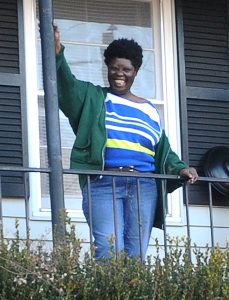
“Get me out of here.”
This statement by Lois Curtis set off a series of events resulting in the U.S. Supreme Court’s game-changing Olmstead vs. L.C. decision in 1999.
That decision came down over 23 years ago.
Yet in North Carolina, disability discrimination remains baked into our systems of care. Thousands of disabled people languish in institutional facilities. Many more live under the threat of going into a facility, because they can’t get what they need in the community. Well over 16,000 people with intellectual and developmental disabilities are on the waiting list for services.
Community services cost far less than facility-based care. Community services are better and for the vast majority of disabled people, more desirable. Why hasn’t North Carolina been as successful as other states in making the shift from outmoded institutions to community-based services and support?
Disability Rights North Carolina (DRNC) is fighting for change. Too many people have told us, “Get me out of here” or “Keep me out of there.”
Over five years ago, DRNC filed a lawsuit on behalf of people like Samantha Rhoney who, like Lois Curtis, wanted to live in the community but were forced into an institution by a system that denies their basic human rights. DRNC won the case two years ago. The State spent the past two years floundering and faltering with false promises to develop a workable plan for change.
The State has never turned its promises into action. During the past two years, DRNC tried to work with the NC Department of Health and Human Services (DHHS) and made suggestions, based on community feedback, to develop a plan with benchmarks and accountability to fix the institutional bias problem and the failure to build a network of community support.
Finally, on November 2, the judge entered an Order that requires the State to:
- Transition or divert people from institutions to the community.
- Fix the shortage of direct support professionals who support disabled people in the community.
- Eliminate the waiting list for services over the course of 10 years.
In other words, do what should have been done long ago. This decision means justice for people with disabilities, just like Olmstead vs. L.C. did.
It is not lost on us that, as Lois Curtis lay dying on November 3rd, a DHHS representative was telling the NC Council on Developmental Disabilities that the state may appeal the Samantha R. decision instead of implementing it. This is a betrayal of the disability community. For years, the State has said they want the same outcomes that are in the Order, but took no steps to make it happen and have not been held accountable until now.
No more. People have been trapped, wishing and waiting too long. Tell DHHS and your elected state representatives that now is the time to make good on all the broken promises. If not now, when?
